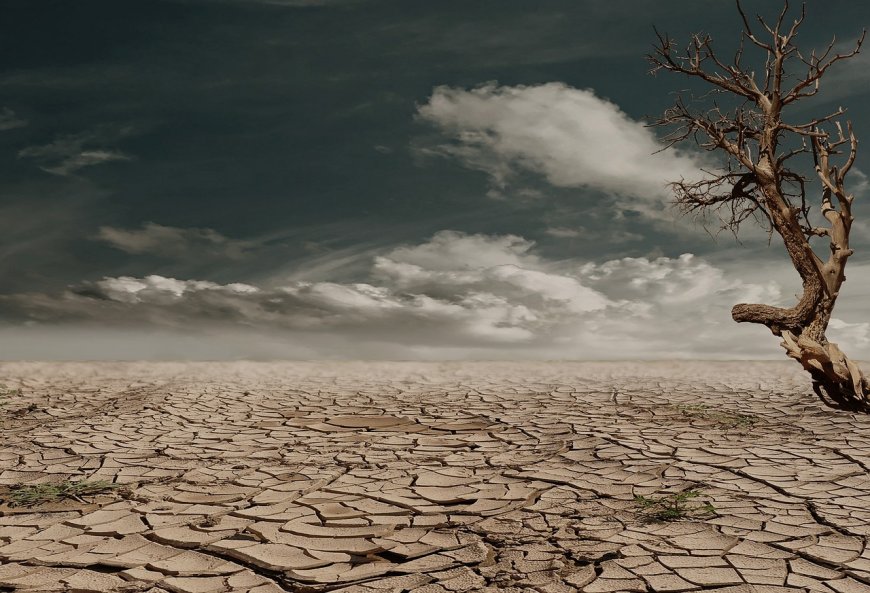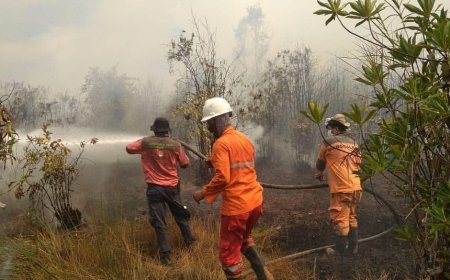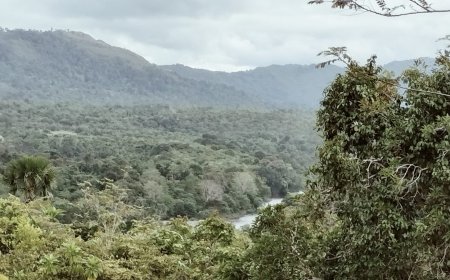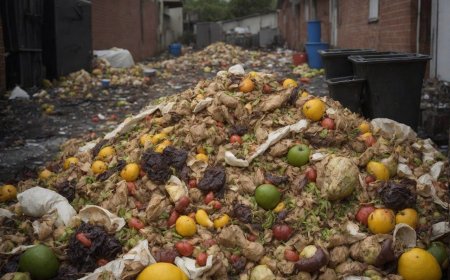Earth's Temperature Will Be More Boiling
Many researchers argue the fight against climate change must continue.

Some researchers' indicates in the journal Nature that this year will be more boiling than 2023 are beginning to be confirmed. Britain's leading media outlet, The Guardian, reported that hundreds of the world's leading climate scientists expect global temperatures to rise by at least 2.5°C (4.5°F) above pre-industrial levels this century. The figure exceeded internationally agreed targets and led to catastrophic consequences for humanity and the planet, according to an exclusive survey by The Guardian.
Almost 80% of respondents, all from the Intergovernmental Panel on Climate Change (IPCC), predicted at least 2.5°C of global warming. Meanwhile, almost half expect the rise to be in the 3°C (5.4°F) range. Only 6% argued that the internationally agreed 1.5°C (2.7°F) temperature limit would be met. Many scientists envision a semi-dystopian future with famine, conflict, and mass migration. The forecast is fueled by heat waves, wildfires, floods, and storms with an intensity and frequency far exceeding anything ever seen.
Many experts say they feel despair, anger, and fear at the government's failure to act despite clear scientific evidence. “I think we are heading for a major social disruption in the next five years,” said Gretta Pecl, from the University of Tasmania. “[Authorities] will be overwhelmed facing extreme event after extreme event, food production will be disrupted. I couldn't feel any greater despair about the future.”

Still, many researchers argue that the fight against climate change must continue, no matter how high global temperatures may be. Every avoidable fraction of a degree would reduce human suffering.
Peter Cox, from the University of Exeter, England, said climate change would not suddenly become dangerous at 1.5°C — but it is already a dangerous one. 'And it won't be the end of the game if we get past 2C, which we probably will'.
The Guardian made approaches to every lead author or editor of the IPCC report review since 2018. Almost half replied, 380 out of 843 reports. The IPCC report is the best standard assessment of climate change, approved by all governments and produced by experts in the physical and social sciences. The results show that many of the world's most knowledgeable people predict that climate cataclysm will occur in the coming decades.
The climate crisis has caused huge damage to lives and livelihoods around the world, with global warming averaging just 1.2C (2.16F) over the past four years. Jesse Keenan, at Tulane University in the US, said: “This is just the beginning: be prepared.”
Nathalie Hilmi, at the Monaco Scientific Centre, which forecasts a 3C temperature rise, agrees: “We cannot continue to be below 1.5C°.”
Experts say massive preparations to protect communities from the worst climate disasters of the future are now of paramount importance. Leticia Cotrim da Cunha, from Rio de Janeiro State University, said: “I am very worried about the impact it will have on human lives.”
The 1.5°C target was chosen to avert the worst effects of the climate crisis and is seen as an important guide in international negotiations. Current climate policy suggests that world temperatures are on track to reach 2.7°C. Meanwhile, the Guardian survey shows, few IPCC experts expect the world to take the major action needed to reduce those temperatures.
Younger scientists appeared more pessimistic, with 52% of respondents under 50 expecting a temperature rise of at least 3°C, compared with 38% of respondents aged over 50. Female scientists are also more optimistic than male scientists, with 49% arguing global temperatures will rise by at least 3°C, compared with 38%. There is little difference between scientists from different continents.
Dipak Dasgupta, at the Institute of Energy and Resources in New Delhi, said: “If the world, which is very rich, just stays silent and does not do much to address the plight of the poor, in the end we will all lose.”
Experts clearly understand why the world is failing to tackle the climate crisis. The lack of political will was expressed by nearly three-quarters of respondents, while 60% also blamed corporate interests, such as the fossil fuel industry.
Many also mention the gaps and failures of rich countries in helping the poor, who suffer the most from climate impacts. “I predict a semi-dystopian future will bring great suffering and suffering to people in the southern regions,” said a South African scientist, who chose not to be named. “The response of the world today is despicable — we live in a stupid age.”
About a quarter of IPCC experts who gave responses argued that global temperature rises would be maintained at 2°C or lower, but their expectations were unchanged.
“I am confident that we have all the necessary solutions to reach the 1.5C pathway and we will implement them in the coming 20 years,” said Henry Neufeldt, at the UN's Copenhagen Climate Centre. “But I am afraid that our actions will be too late and we pass one or another tipping point.”
Lisa Schipper, of Bonn University in Germany, said: “My only source of hope is the fact that, as an educator, I can see the next generation being so intelligent and understanding of politics.”







